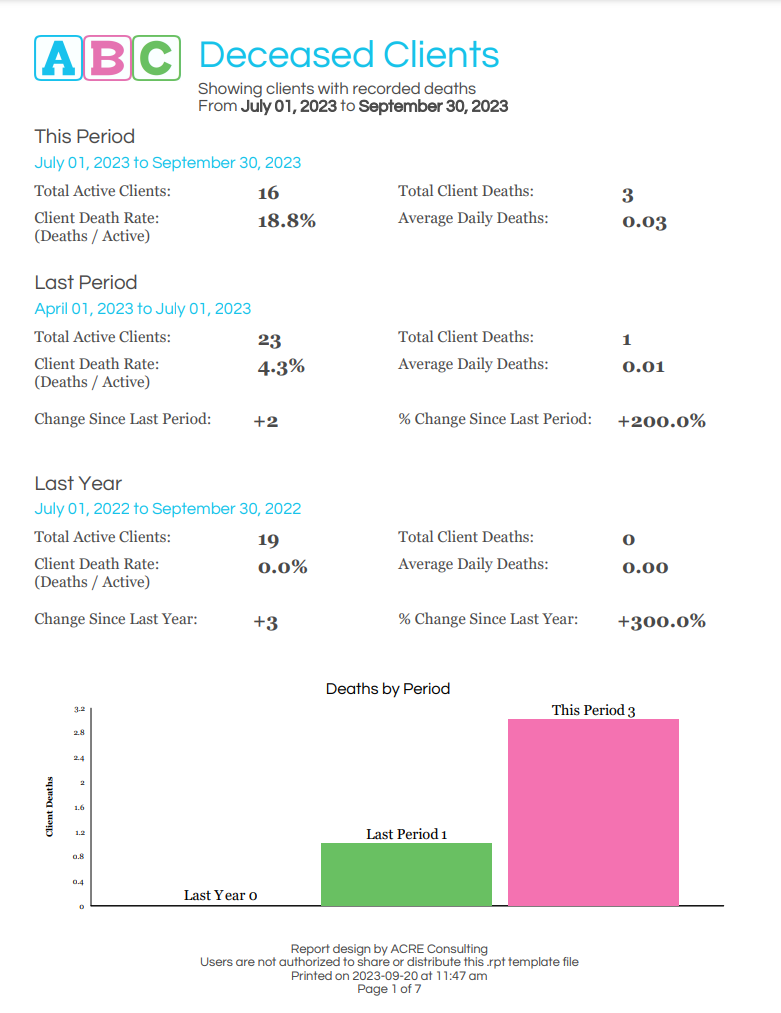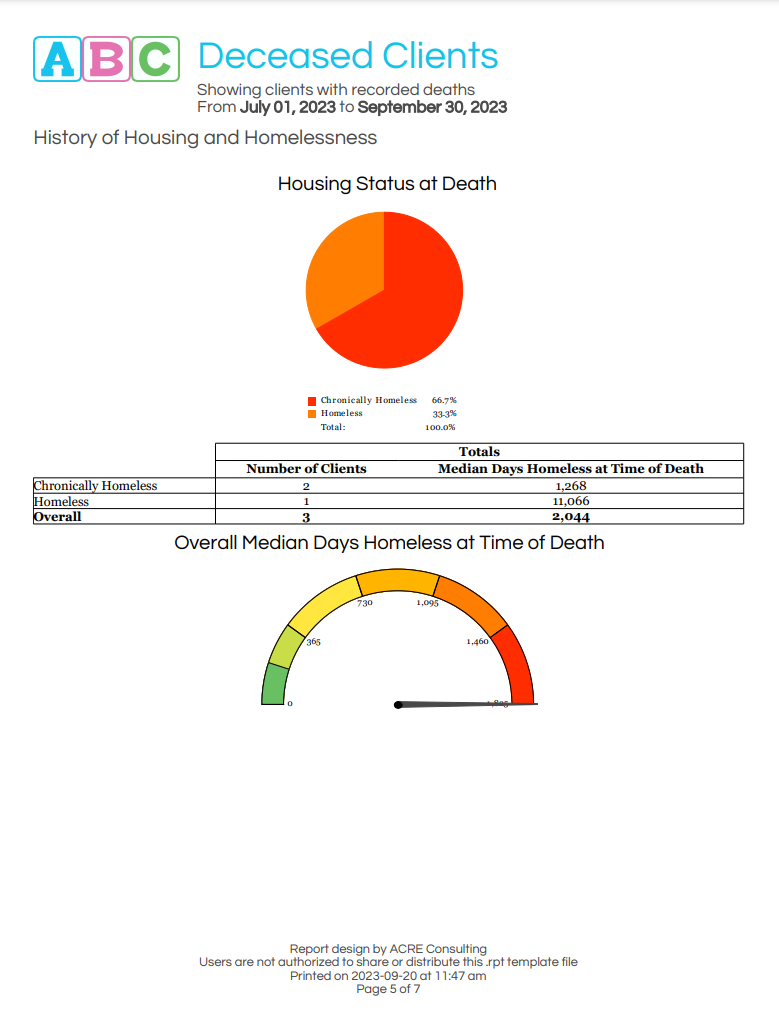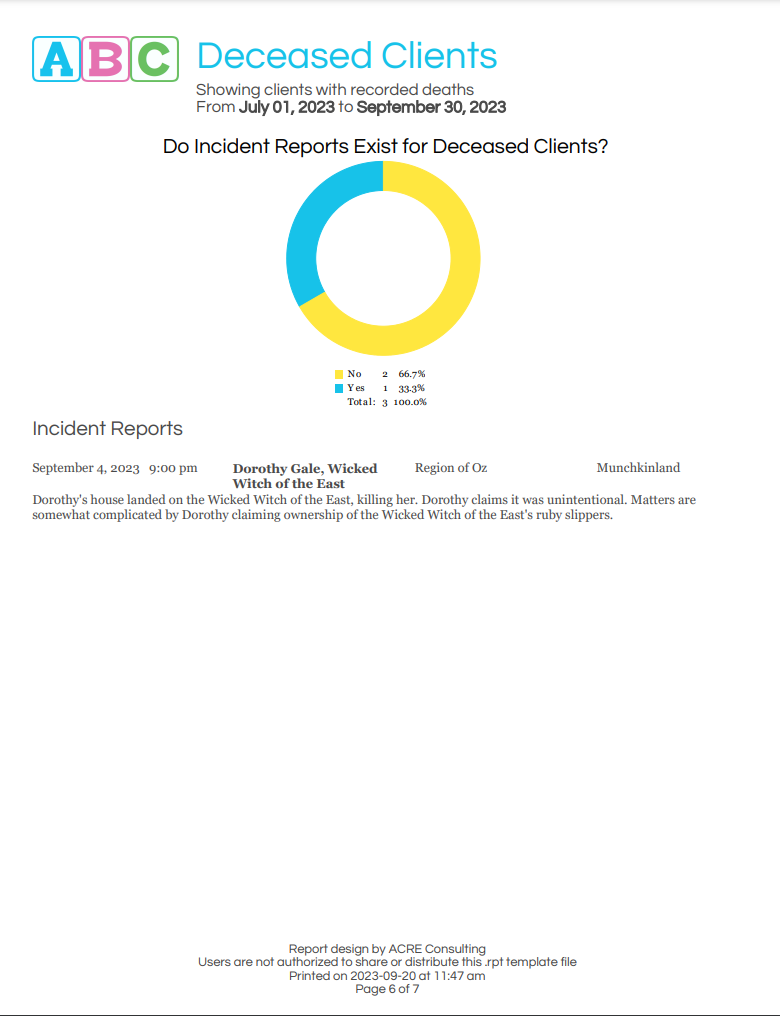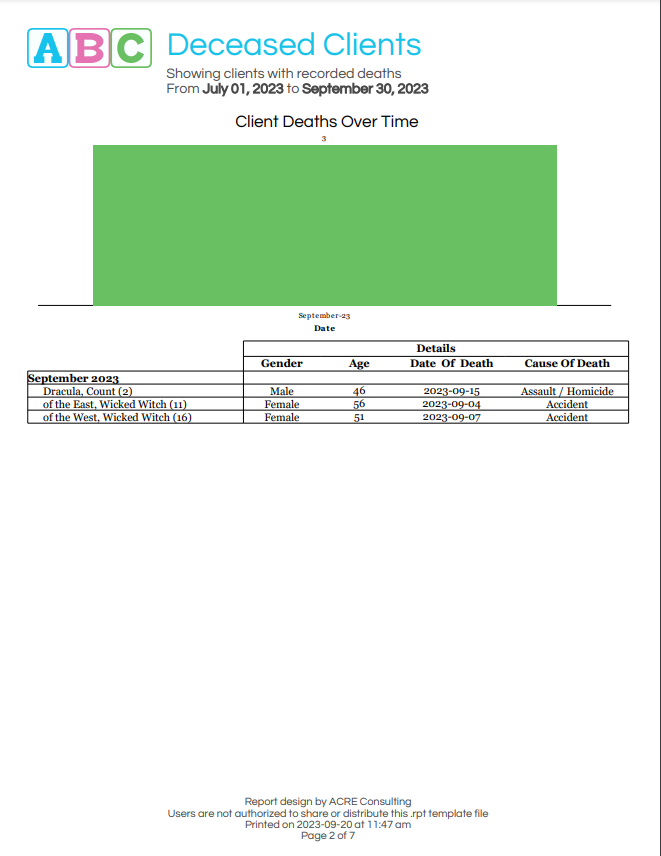
Deceased Clients
$500 CAD
This report contains a summary of relevant information about a client subgroup: deceased clients. For a given date range, it displays how many and which clients died in that period. It also aggregates causes of death, gender, indigenous identity, citizenship and veteran status, and housing status at death.
The report shows trends of client deaths over time, contains information about related incident reports, and assists caseworkers to audit their files by indicating which deceased clients still have open files.
What's included?
This 7+ page report lists all clients that have passed away during a particular date range, for the current cluster.
It provides a trend analysis, so you can see:
- Deaths this period compared to the last period
- Deaths this period compared to the same period of last year
- Death rate, as a percentage of total active clients
- Average daily deaths
Open services for deceased clients are listed, to assist staff with data clean-up.
Additionally, aggregated information about what services a client was receiving prior to their passing is included, along with any related incident reports.
Frequently asked questions
Frequently asked questions
You've got questions? We've got answers.
This report should run on any version of HIFIS version 4.0.57 and higher.
This report will be maintained into the foreseeable future. If a software update causes it to stop working, or if we find an error, we'll update the file and let you know there's a new version available, at no additional cost to you.
The run-time varies depending on how much data is in your database, and how long a date range and how many service providers you select when running the report. However, we have tested the report with large data volumes and it runs quickly and efficiently.
- Start Date
- End Date
Check out our README file.
Audit Boot Camp
A series of premium reports and materials expertly crafted to help you whip your data into shape.
You may also like:
Client Subpopulations Analytics Bundle
ACRE Analytics
*Presale*
This bundle includes four premium reports focusing on your client subpopulations:
-
Indigenous Clients (coming soon);
-
Refugee Clients; and
Reports can be purchased individually or as a bundle for 40% off regular price!
Veteran Analytics
ACRE Analytics
It’s well known that veterans are overrepresented among those who experience homelessness. Resources are available from Veterans Affairs Canada, but sometimes making that connection is difficult. This report contains a breakdown of veterans by veteran status, status verification, and referrals to Veterans Affairs Canada. It also compares veterans against non-veteran clients along the dimensions of: gender, age, housing status, chronic homelessness, sources of income, identification, contributing factors, and service usage. Finally, it includes a priority list of homeless veterans.
Refugee Analytics
ACRE Analytics
When refugees have nowhere else to go, they end up in emergency homeless shelters. But how many of them are there, and what are their needs? This report contains a breakdown of countries of birth and languages spoken by refugees. It also compares refugees against clients with other citizenship statuses, along the dimensions of: gender, age, housing status, sources of income, identification, contributing factors, and service usage. Finally, it includes a priority list of homeless refugees.





